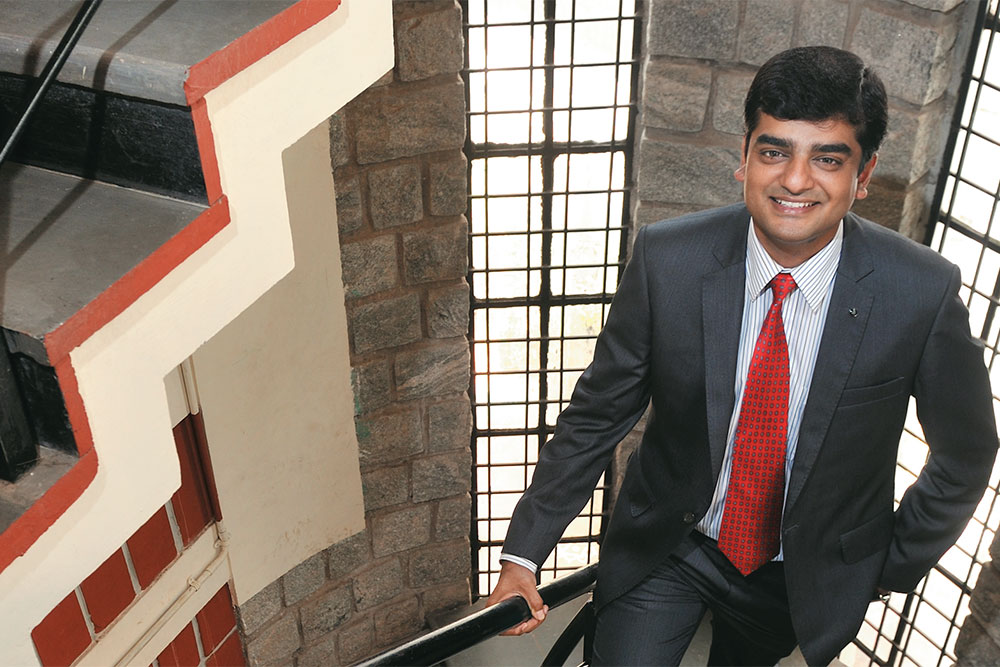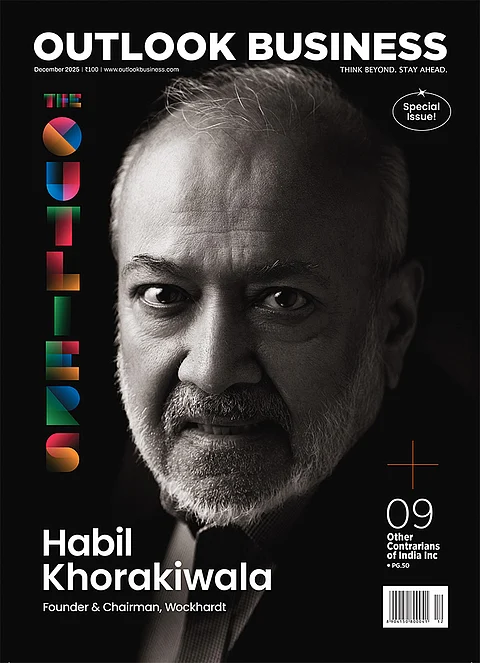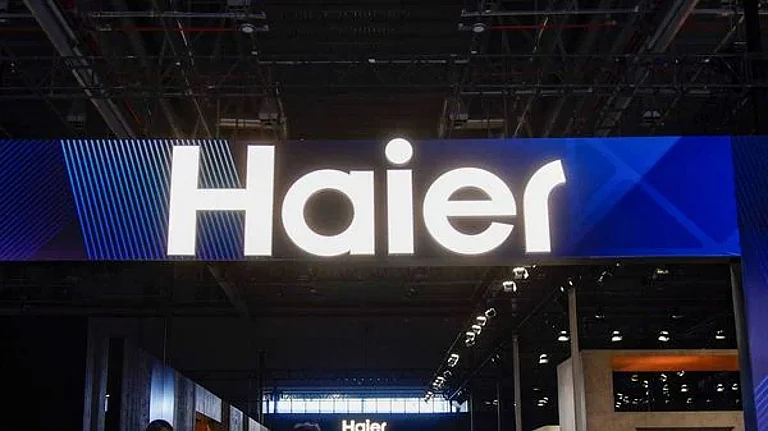Rajiv Jayaraman had a set schedule in California a decade ago. The 24-year-old would spend the week at Oracle, focusing on patents and products. Weekends were reserved for theatre: he was part of a troupe that performed plays for charitable organisations. It was a happy balance: while patents gave him the thrill of creation, they took years to turn into products; acting, on the other hand, was all about living in the moment. But somewhere between plays and patents, the entrepreneurial bug bit Jayaraman. “That is when I thought of doing something at the intersection of technology and story-telling,” recalls Jayaraman, the 34-year-old founder-CEO of Knolskape.
The five-year-old Knolskape does just that, creating simulation-based products for managers and B-school students. With the basic idea that it’s easier to learn by doing, the company has developed off-the-shelf as well as customised virtual learning tools and experiential learning products for clients such as Standard Chartered Bank, Mindtree, Cognizant, Volvo and L&T Infotech, as well as leading B-schools such as Kellogg, National University of Singapore, Indian School of Business and Insead. “This is story-telling where the protagonist is also the learner,” says Jayaraman, whose company started making profits from its second year of operations and is expected to clock revenue of #3 crore by June 2013.
An entrepreneurial education
For someone with a creative bent of mind, Jayaraman’s foray into entrepreneurship began on a conventional note: he enrolled for an MBA at Insead with a vague idea of “later” getting into animation. It was to be a life-changing decision. For a subject in human resources, he was assigned a simulation product. “For the first time, I was not sitting in a lecture. I was doing things and seeing their impact immediately. That was my a-ha moment,” says Jayaraman.
As it happened, Insead offered only that one simulation-based learning, whereas he saw potential for extending the concept. “I started looking at other subjects where one could learn through experience and the foundation of Knolskape was laid.” The timing couldn’t have been worse — Jayaraman graduated in 2008, when the global economy was on the verge of collapse. Instead of setting out completely on his own, therefore, he set up Knolskape — a portmanteau of “knowledge” and “landscape” — at Insead in Singapore. While Insead paid ₹35 lakh for the work the company did in the first year and provided office space, Knolskape bootstrapped itself for four years.
In the first year, Jayaraman and his eight-member team worked on getting their product strategy right, creating products for Insead and other educational institutions. As Knolskape focused on enriching management curriculum, institutions such as ISB and Kellogg soon signed on as clients. “Since we started through Insead, many doors opened for us,” he says. Indeed, the company’s grown so far entirely through word of mouth. By year two, when Knolskape had an independent office, corporate clients too came on board. Now, the company has about 25 clients, including B-schools and corporates, across South East and West Asia and the US.
Role playing
So, how do Knolskape’s products work? It’s fairly simple. The cloud-based products allow a user to log in and participate in any simulation-based case study. In a simulation for soft skills training, for instance, two animated characters could be in conversation. When the student intervenes and adds his observations/ comments, the conversation changes and becomes dynamic — every wrong option will take the learner to a dead-end. Another simulation for pricing strategy has the participant play the role of pricing director in an airline. As the student takes decisions on fares, the simulation is equipped with events that affect a customer’s choice of airline; it also offers insights on effective capacity utilisation and the impact of the decisions on profitability and the competitive landscape.
Different products are available for various management areas such as leadership, IT, HR and sales. Balagopal Vissa, associate professor of entrepreneurship at Insead, says a part of his research was on the networking style of entrepreneurs. Knolskape helped him develop a tool to analyse a participant’s behaviour and networking style. “It brings concepts to life and it is so much easier to demonstrate through experience,” he says. The IP for this tool is with Vissa while Insead bore the costs of developing it.
While the initial ideas were developed in association with Insead faculty, Knolskape has built its own product development capability and is now also customising content for clients. For instance, if a team within a company wins a big contract, Knolskape can turn their strategy and approach into a simulation-based case study for others in the organisation. Goals, functions, roles etc., can all be modified depending on the business requirements and international versions created for global customers.
Knolskape is also setting up on-campus simulation labs to give students greater access to its products. Five B-schools in Bengaluru have already signed on for a subscription model where students will pay ₹500-700 per session. Jayaraman declines to name the institutions as the contracts are yet to be signed. “Pilots are trained in flight simulators and surgeons on cadavers. But managers take decisions without understanding their impact on the company or customers. We want managers to learn the art of prediction instead of passive thinking,” says Jayaraman.
The revenue model, too, is straightforward — the company charges a licence fee based on the number of players and also offers an annual subscription model for a basket of simulations. The pricing is in the range of ₹2,500-5,000 per simulation for off-the-shelf products. Customised products cost between ₹ 5 lakh and ₹10 lakh. According to Jayaraman, those prices are comparable with other simulation products in the market.
Knolskape has formidable competition in the form of Harvard Business Publishing, but its USP lies in customising case studies as well as offering soft skills training through simulations. Similarly, while Sweden’s BTS offers simulation-based leadership development for corporate customers, that is largely centred on top management, whereas Jayaraman’s company covers almost all levels of hierarchy, ranging from frontline managers to CXOs.
The ability to customise products will give the company an edge when it comes to scaling up, believes Jayaraman. But the challenge is attracting the right talent, with technical as well as design knowledge. “It is not easy to get people with knowledge in design as well as computer science,” he rues.
Having moved to India in 2009 with an eight-member team, the company now has 20 employees, including engineers from BITS Pilani (Jayaraman’s alma mater), designers and product managers, who create the simulation gaming products. Now, he plans to build a marketing team to evangelise experiential learning and simulation and make the company more visible to academicians and companies.
Knolskape’s had a fairy tale journey so far: zero investment, blue-chip clients and no marketing effort. Jayaraman is confident his client base will only expand going forward — indeed, his aim is to cross ₹100-crore topline in the next five years. “Today, if you miss a lecture at 9 am, it’s gone. There will come a time when the student will be in the in driver’s seat, gaining access to knowledge about anything, anywhere and at any time.” And Knolskape is ensuring it’s perfectly placed to cash in on that transformation as and when it takes place.











